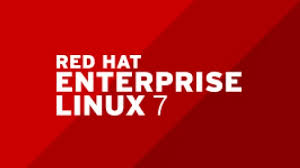In today's digital age, Small and Medium-sized Businesses (SMBs) rely heavily on Enterprise Resource Planning (ERP) and Management Information Systems (MIS) to streamline operations, improve decision-making, and enhance overall efficiency. A robust and reliable server infrastructure is critical to the success of these applications. Enterprise Linux servers, with their open-source nature, flexibility, and security, offer a compelling solution for SMBs.
White Paper: Enterprise Linux Servers: A Robust Foundation for ERP and MIS Applications in SMBs
Introduction
In today's digital age, Small and Medium-sized Businesses (SMBs) rely heavily on Enterprise Resource Planning (ERP) and Management Information Systems (MIS) to streamline operations, improve decision-making, and enhance overall efficiency. A robust and reliable server infrastructure is critical to the success of these applications. Enterprise Linux servers, with their open-source nature, flexibility, and security, offer a compelling solution for SMBs.
Understanding Enterprise Linux
Enterprise Linux distributions, such as Red Hat Enterprise Linux (RHEL) and CentOS, are specifically designed for mission-critical environments. They offer a stable, secure, and performance-optimized platform that can handle the demands of ERP and MIS applications.
Key Use Cases for Enterprise Linux in SMBs
- ERP Implementation:
- Centralized Data Management: Enterprise Linux servers provide a centralized platform to manage and store critical business data, ensuring data integrity and accessibility.
- Real-time Insights: With powerful database systems like PostgreSQL and MySQL, ERP applications can deliver real-time insights into inventory, sales, and financial performance.
- Scalability: As SMBs grow, Enterprise Linux servers can easily scale to accommodate increased workloads and data volumes.
- MIS Reporting and Analytics:
- Data Warehousing and Business Intelligence: Enterprise Linux supports data warehousing solutions like Hadoop and Apache Spark, enabling SMBs to analyze large datasets and uncover valuable insights.
- Customized Reporting: With tools like Tableau and Power BI, SMBs can create customized reports and dashboards tailored to their specific needs.
- Predictive Analytics: By leveraging machine learning and AI, SMBs can forecast future trends and make data-driven decisions.
- Web and Application Hosting:
- High Availability and Performance: Enterprise Linux servers can be configured to provide high availability and performance for web applications and services, ensuring uninterrupted access.
- Security: With robust security features and regular updates, Enterprise Linux servers protect against cyber threats and data breaches.
- Scalability: As web traffic and application usage increase, Enterprise Linux servers can be easily scaled to meet growing demands.
Operational Benefits of Enterprise Linux for SMBs
- Cost-Effective:
- Open-Source Licensing: Enterprise Linux distributions are often available under open-source licenses, reducing software costs.
- Lower Hardware Requirements: Enterprise Linux can run on a variety of hardware configurations, allowing SMBs to optimize their IT investments.
- Security:
- Regular Security Updates: Enterprise Linux vendors provide regular security updates to address vulnerabilities and protect against cyber threats.
- Robust Security Features: Built-in security features, such as SELinux and AppArmor, enhance system security.
- Reliability and Stability:
- Proven Technology: Enterprise Linux has a long history of reliability and stability, ensuring minimal downtime and business continuity.
- Enterprise-Grade Support: Many Enterprise Linux distributions offer enterprise-grade support options, providing expert assistance when needed.
- Flexibility and Customization:
- Open-Source Ecosystem: A vast ecosystem of open-source tools and applications can be integrated with Enterprise Linux to meet specific business requirements.
- Customization Options: Enterprise Linux offers a high degree of customization, allowing SMBs to tailor the system to their exact needs.
Conclusion
Enterprise Linux servers provide a robust, secure, and cost-effective foundation for ERP and MIS applications in SMBs. By leveraging the power and flexibility of Enterprise Linux, SMBs can streamline operations, improve decision-making, and gain a competitive edge.
References
- Red Hat Enterprise Linux: https://www.centos.org/
- PostgreSQL: https://www.mysql.com/
- Hadoop: https://spark.apache.org/
- Tableau: https://www.microsoft.com/en-us/power-platform/products/power-bi
Note: For a more in-depth analysis, consider including specific case studies, performance benchmarks, and security best practices. Additionally, consult with IT experts to tailor the white paper to your specific business needs. Contact keencomputer.com for details.
